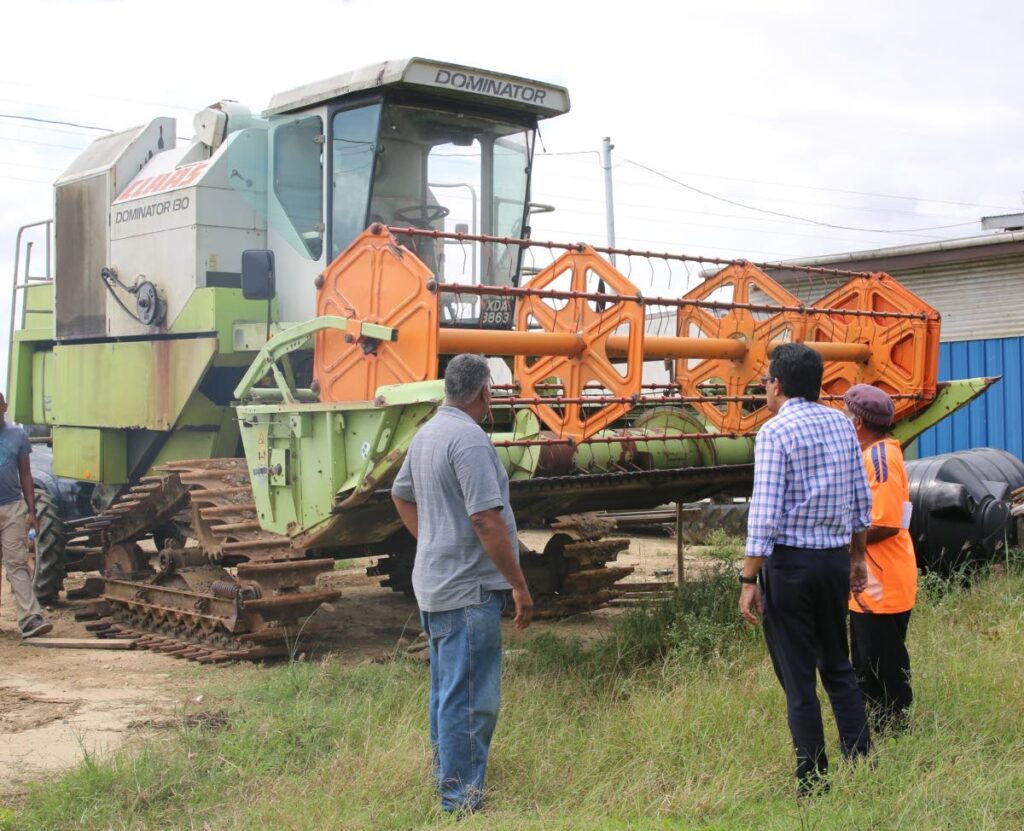Rice farmer welcomes government's $5m investment

Government intends to make a $5 million cash injection into the rice industry hoping to help farmers access fields and boost production which went dormant over the last seven years.
Agriculture Minister Kazim Hosein made the pledge as he met with rice farmers on February 23 at Farmers Choice Vegetable Mart, Old Southern Main Road, Caroni.
The money will be used to rehabilitate and repair rice field access roads, irrigation and drainage channels and other supportive infrastructure works as well as land clearing and drainage/irrigation upgrades.
Commenting on the decision, one rice farmer said this investment will definitely help him and boost the industry.
Kelly Doodnath said, “Over the years, we have had abandoned fields for over six to seven years, so all the infrastructure needs improvement.”
“The major challenge we have right now is to come back after so long, we have some serious challenges with seeds which the ministry promised to provide for us initially.”
Doodnath said since he depends on other farmers to harvest his crop, to get the industry back to where it was, lots of repairs will be needed to the machinery.
“But we’re happy that they (the government and ministry) are taking this initiative to revitalise the rice industry because, in light of what’s taking place in the world with respect to food, it’s important that we provide at least some of the rice that we consume here. We have the land, resources and the technology to do so.”
Doodnath said from the boom of the industry to now, many rice farmers left because of the many issues plaguing them, one of which was late payment by the government. He said farmers would have to wait some 14 months before they receive their first payment.
“Rice is basically a six-month crop, from the time you start to plant, all the investments must be put up front. So when you do one crop, harvest and try to start another, you’d have no money, and you’d be out-of-pocket. That severely affected our cash flow.”
Doodnath said the investments could amount to around $150,000 to grow the crop and excluded the cost of harvesters. Since farmers were faced with untimely payments, some took out loans with the Agricultural Development Bank (ADB) and were faced with the challenge of repaying the loan, he said.
Doodnath said these farmers were left asking the ADB to either write off their loans or repossess the equipment they bought.
He said other infrastructural issues such as drainage and access roads were repaired by farmers. He said since most of his land is in the Caroni plains, drainage wasn’t his biggest concern since the Ministry of Works and Transport does work in that area. But he said the “final nail in the coffin” for the industry was the devastating flooding in 2018.
“Before the big flood in 2018, most of us had rice to harvest and the ministry compensated all the farmers for their vegetables, but rice farmers weren’t paid a cent from that disaster,” he claimed.
He said he had planted 120 acres of rice which would have produced around 3,000 to 4,000 pounds of rice and at the time would have cost between $1 and $2 per pound. This would amount to between $300,000 and $900,000 in losses since the rice was ready to harvest the same day as the devastating floods. Doodnath said he wished rice farmers could be treated with more respect.
With the ongoing move to reduce the food import bill by 25 per cent by 2025, Doodnath said he believes TT can reduce the amount of rice imported.
The ministry said TT imports around 95 per cent of rice while only five per cent is locally sourced.
According to the CSO, TT’s rice imports for 2019, 2020 and 2021 amounted to over $126,000,000, $136,000,000 and $146,000,000 respectively.
In 2019, it was reported that TT consumes 34,000 metric tonnes of rice and in 2018 National Flour Mills (NFM) purchased 585 metric tonnes.
When asked if he thinks TT would be able to produce rice on a large scale again Doodnath said, “We used to do it in the past and we even exported. We still have the capacity to do so and one of the advantages that we have is the fairly young farmers and a lot of mechanised operations.”
The release said Hosein pledged to meet with key stakeholder agencies – Ministry of Trade and Industry, NFM and ADB officials to discuss the issues facing them and the sector to address the concerns raised by the farmers.


Comments
"Rice farmer welcomes government’s $5m investment"